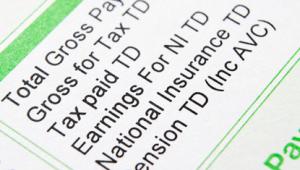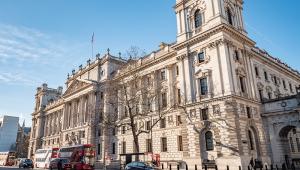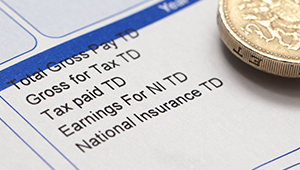By Richard Johnstone | 14 March 2013
Pay for public sector staff such as NHS workers and senior civil servants will rise by an average of 1% from April, the Treasury confirmed this afternoon.

Image © iStock
Ministers’ acceptance of recommendations from five public sector pay review bodies brings to an end the central government pay freeze in place since 2011.
The increase will be given to senior civil servants, doctors, dentists, all health service staff on the Agenda for Change pay scale, prison officers and members of the armed forces.
It is in line with Chancellor George Osborne’s pledge in the 2011 Autumn Spending review that increases would be capped at 1%.
The public sector pay bill makes up over half of departmental resource spending so managing it will continue to be ‘central’ to the government’s fiscal consolidation plan, the Treasury added.
Awards for rank-and-file civil servants not covered by the Senior Salaries Review Body will now be confirmed by individual Whitehall departments following the announcement.
Today’s agreement does not apply to local government, where pay deals are set following negotiations between council employers and trade unions. Two proposals to end the three-year pay freeze in local government, with a maximum increase of 1%, are currently being examined by unions
Teachers’ pay is set according to the academic year, as opposed to the financial year. The Teachers’ Pay Review Body is expected to report back by the end of May.
Responding to the announcement, the Unite trade union said the award would lead to a further reduction in living standards for millions, as the Consumer Prices Index measure of inflation is currently 2.7%.
Gail Cartmail, assistant general secretary for the public sector, said nurses, health visitors, prison officers and soldiers were bearing the brunt of the government’s ‘economically divisive’ policies.
‘Public sector workers contribute greatly to their local economies, so if their pay packets are further squeezed, this has an adverse knock-on effect in the local high street, and this will hinder economic recovery.’
Unite would campaign in the next 12 months for public sector workers to receive a substantial and fair uplift in their wages for the year 2014/15, she added.
Christina McAnea, head of health at Unison, said the ‘squeeze’ on pay would make life even harder for many NHS workers already struggling to make ends meet.
She added that Osborne’s announcement in 2011 had undermined the independence and integrity of the pay review body system
She added: ‘What kind of message does it send to health workers about the value this government places on their work? And what incentive is there for young people to join the NHS when they are so undervalued?
‘Freezing and squeezing pay is crushing morale and heaping financial misery on more than a million NHS workers. At the same time, the NHS is going through a massive reorganisation and staff are dealing with job cuts, rationing and ever increasing patient numbers.’
However, NHS Employers said the decision to increase pay by 1% would ‘put further unnecessary financial pressure on the health service’. Its submission to the pay review body had called for the pay freeze to be extended.
Chief executive Dean Royles said he could understand why the government had accepted the recommendation, but added: ‘I am still deeply perplexed that the independent pay review bodies have recommended any increase at all.
‘We gave compelling evidence to the pay review bodies on pay levels, staff turnover and improvements in job satisfaction, arguing that a pay increase this year wasn't necessary and would add additional cost pressures to NHS trusts in what we know will be an extremely challenging year.
‘This pay increase of 1% for all NHS staff will add in the region of £500m to NHS annual expenditure. This is the equivalent of around 15,000 new nurses.’






















